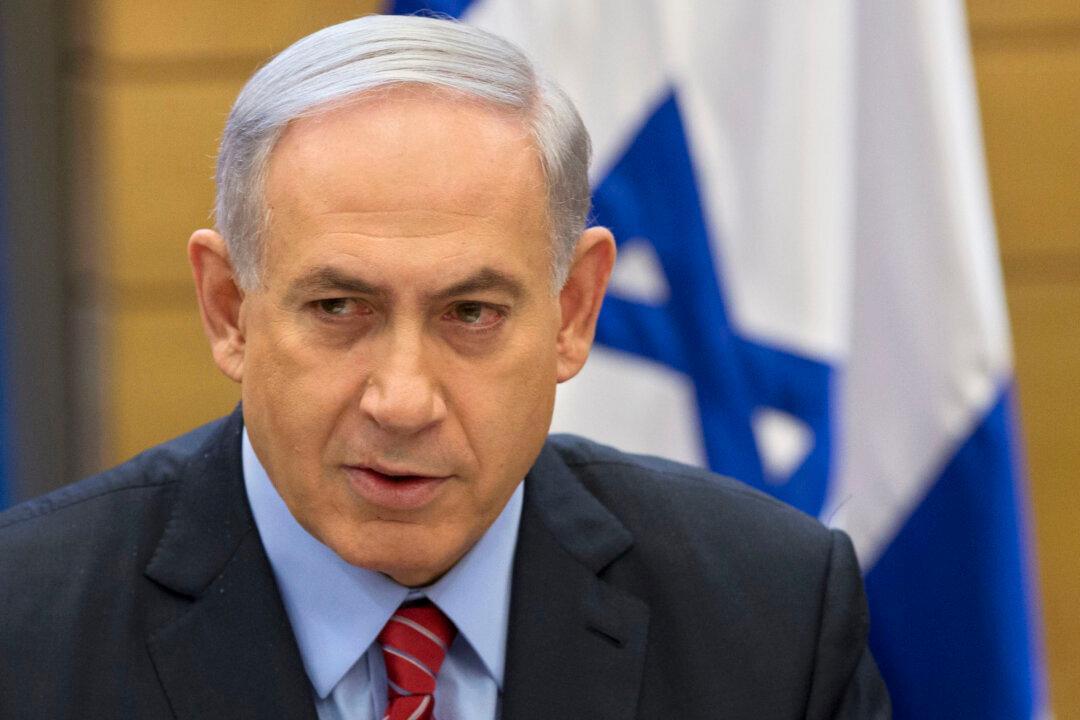JERUSALEM—With no end in sight to weeks of Israeli-Palestinian violence, Prime Minister Benjamin Netanyahu headed to Germany on Wednesday as part of a high-profile diplomatic push to restore calm.
The trip, which included a meeting with German Chancellor Angela Merkel and talks with U.S. Secretary of State John Kerry on Thursday, came on a day of new Palestinian attacks in the West Bank.
Israeli officials said a female Israeli soldier was stabbed and seriously wounded by a Palestinian man who was shot dead, while late Wednesday, the army said a Palestinian motorist wounded four Israelis in a hit and run in the southern West Bank. Israeli soldiers opened fire, and the fate of the driver was not immediately clear. Meanwhile, Israeli troops shot and wounded a 14-year-old Palestinian girl whom they said was carrying a knife and trying to infiltrate a Jewish settlement.
It remains unclear whether the diplomatic push will be able to succeed. The Israeli and Palestinian leaders have vast differences over the causes of the violence. It also is unclear whether anyone can rein in the attackers, who have been young “lone-wolf” Palestinians, often in their teens, acting on their own.
At a news conference with Merkel, Netanyahu reiterated his belief that Palestinian incitement has fueled the unrest. He pointed to Palestinian President Mahmoud Abbas’ refusal to condemn attacks on Israelis and accusations that Israel is changing delicate prayer arrangements at Jerusalem’s holiest site.
Netanyahu called the claims false. “It is very clear to us that incitement leads to terror,” he said. “The international community must demand that President Abbas stop the incitement and stop spreading the lies about the Jewish state and about Israel’s policies.”
The unrest began last month after clashes erupted at the holy site—a hilltop Old City compound revered by Jews and Muslims. Jews call the compound the Temple Mount, the holiest site in Judaism and home to the biblical Temples. Muslims call it the Noble Sanctuary, and today it houses the Al-Aqsa Mosque, Islam’s third-holiest site and an important Palestinian national symbol.
Israel captured the site, along with the rest of east Jerusalem and the West Bank, from Jordan in the 1967 Middle East war. Under a “status quo” arrangement, Jews are permitted to visit but not pray in the compound. While Netanyahu says Israel is committed to preserving the status quo, Palestinians point to a growing number of Jewish visitors, including Israeli officials, who seek prayer rights and an expanded presence on the mount as evidence of Israeli encroachment.
During the past month, 10 Israelis have been killed by Palestinian assailants, mostly in knife attacks, while at least 47 Palestinians have been killed by Israeli fire. Twenty-six of the Palestinians have been labeled by Israel as attackers, with the remainder killed in clashes between Israeli forces and Palestinian protesters. An Eritrean migrant was killed after being mistaken for an Arab attacker during a shooting at a bus station.
At their news conference, Merkel said she recognized Israel’s “obligation” to protect its citizens. But she said both sides need to take steps to restore calm and urged Netanyahu to rethink his policy on Jewish settlements on occupied lands claimed by the Palestinians.
“I have spoken out against them many times and if it is about doing everything possible right now to calm the situation, then I think all sides need to make a contribution,” she said.





